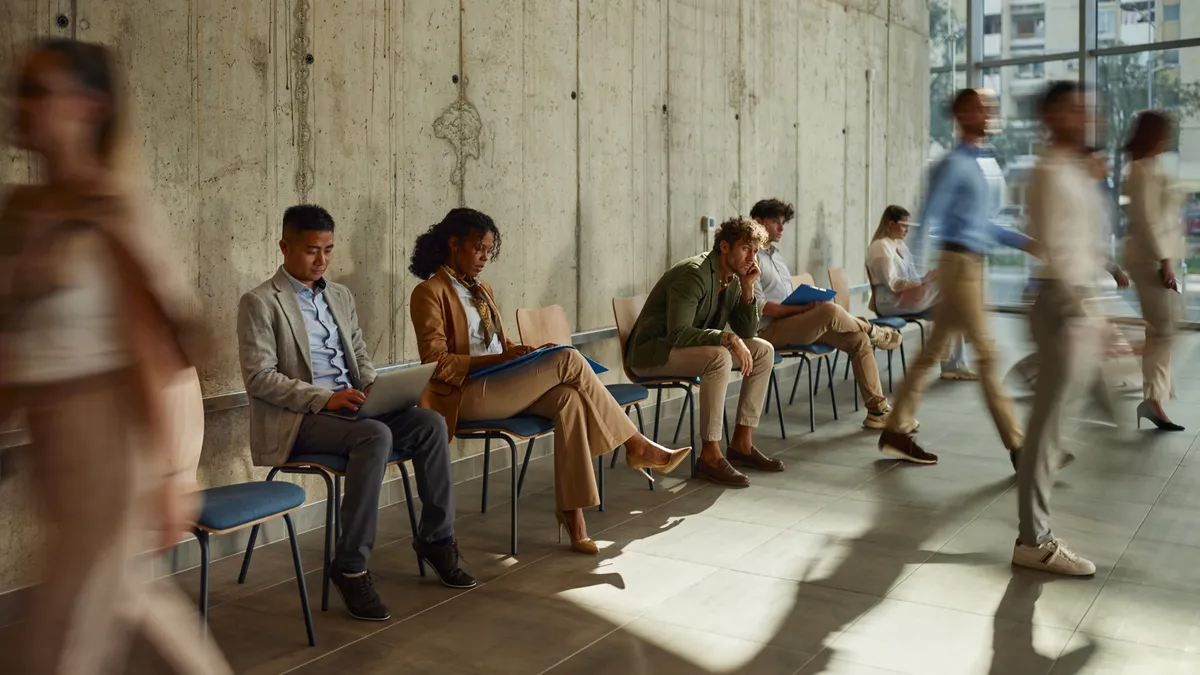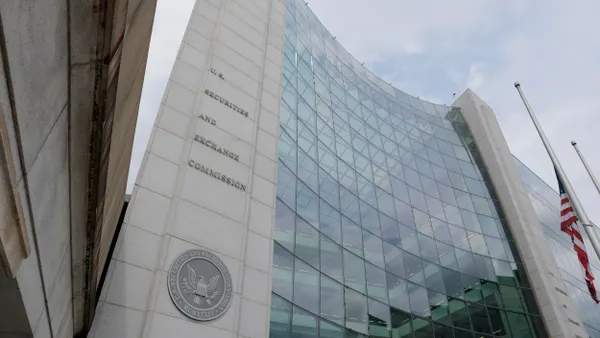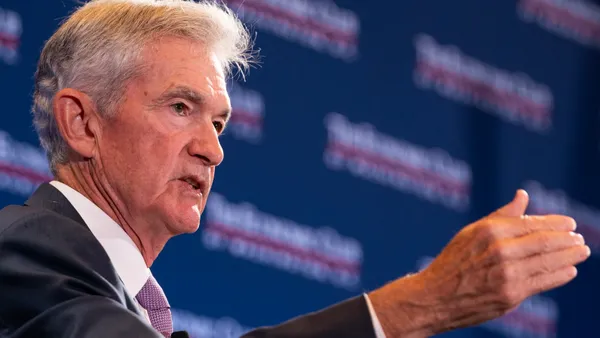Dive Brief:
- Roughly one out of four companies (27%) plan to delay hiring or investment during the next six months, the National Association for Business Economics said Monday, underscoring concern about a murky outlook for the economy and the impact from shifts in trade and other policies by the Trump administration.
- Nearly three out of five business economists (59%) view recession as a top risk during the coming year, with the same proportion flagging changes in federal policy as one of the top three potential hazards in coming months, the NABE said, describing results of a July survey of company economists. In a May survey, 84% of respondents flagged a downturn as a leading risk.
- Despite declining worries about a recession, “companies are taking a more cautious approach to hiring and capital expenditures amid elevated materials costs and wages,” Ford Motor Company Global Chief Economist Emily Kolinski Morris said in a statement.
Dive Insight:
The average U.S. tariff rate will probably settle in a range between 15.8% and 25%, according to two thirds of company economists on an NABE panel.
“While the recession probabilities have shifted slightly lower, an elevated and consistent share of panelists remains concerned about uncertainty over the implementation and timing of policy from the new administration,” including trade policy, Cotality Chief Economist Selma Hepp said in a statement.
President Donald Trump on Sunday said the U.S. and EU reached a trade deal aimed at averting higher import duties. Under the deal, the EU will pay a 15% tariff on U.S. imports of cars and other goods. The U.S. and Japan last week announced that Japan will pay a 15% tariff on its exports to the U.S.
The new U.S. tariffs and foreign retaliation through Sunday pushed up the average tariff rate to 18.2% – the highest level since 1934, the Yale Budget Lab said Monday. This compares to the 2.5% rate at the end of last year.
The Trump tariffs in the short term will push up prices by 1.8%, reducing the income of the average U.S. household by $2,400, the Yale Budget Lab said. Consumers will face in the short run 39% higher shoe prices and 37% higher apparel prices.
Import duties will also slow economic growth by 0.5 percentage point in both 2025 and 2026, and unemployment will likely rise 0.4 percentage point this year and by 0.7 percentage point by the end of 2026, the Yale Budget Lab said.
U.S. companies are possibly forgoing several initiatives because of the hazy outlook for import duties, according to Hepp.
Only 2% to 3% of respondents to the NABE survey said their companies will increase hiring or investment in the U.S. during the next six months, the NABE said, citing results from the survey from July 2 until July 11.
“Their uncertainty may be holding businesses in a neutral state,” Hepp said.
Sixty percent of respondents said their companies did not change their prices over the past three months, the NABE said, adding that 25% expect to raise prices in the next three months.
The finding that 27% of business economists said their companies plan to delay hiring or investment, “indicates a wait-and-see approach that seems to resonate throughout most of this survey,” Hepp said during an NABE webinar.















